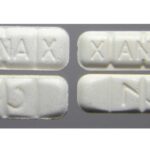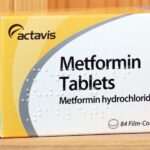Does Fluticasone Expire?

Nonprescription fluticasone nasal spray (Flonase Allergy) is used to relieve symptoms of rhinitis such as sneezing and a runny, stuffy, or itchy nose and itchy, watery eyes caused by hay fever or other allergies (caused by an allergy to pollen, mold, dust, or pets). Prescription fluticasone is also used to relieve symptoms of nonallergic rhinitis such as sneezing and runny or stuffy nose which are not caused by allergies.
Prescription fluticasone nasal spray (Xhance) is used to treat nasal polyps (swelling of the lining of the nose). Fluticasone nasal spray should not be used to treat symptoms (e.g., sneezing, stuffy, runny, itchy nose) caused by the common cold. Fluticasone is in a class of medications called corticosteroids. It works by blocking the release of certain natural substances that cause allergy symptoms.
How is Fluticasone used?
Fluticasone comes as a (prescription and nonprescription) liquid to spray in the nose. When fluticasone nasal spray is used to relieve hay fever, and other allergy symptoms, or nonallergic rhinitis, it is usually sprayed in each nostril once daily. Alternatively, fluticasone nasal spray is sometimes sprayed in each nostril twice daily (in the morning and evening) at a lower dose as recommended by your doctor. When fluticasone nasal spray is used to treat nasal polyps, it is usually sprayed once or twice in each nostril twice daily. If you are an adult, you will begin your treatment with a higher dose of fluticasone nasal spray and then decrease your dose when your symptoms improve. If you are giving fluticasone nasal spray to a child, you will begin treatment with a lower dose of the medication and increase the dose if the child’s symptoms do not improve. Decrease the dose when the child’s symptoms improve.
Follow the directions on your prescription or product label carefully, and ask your doctor or pharmacist to explain any part you do not understand. Use fluticasone exactly as directed. Do not use more or less of it or use it more often than directed on the package label or prescribed by your doctor.
Fluticasone nasal spray is only for use in the nose. Do not swallow the nasal spray and be careful not to spray it into your eyes or mouth.
Each bottle of fluticasone nasal spray should only be used by one person. Do not share fluticasone nasal spray because this may spread germs.
Fluticasone nasal spray controls the symptoms of hay fever, allergies, nonallergic rhinitis, or nasal polyps, but does not cure these conditions. Fluticasone works best when used regularly. Use fluticasone on a regular schedule unless your doctor has told you to use it as needed. Call your doctor if your symptoms get worse or do not improve after you use nonprescription fluticasone nasal spray daily for 1 week.
Fluticasone nasal spray is designed to provide a certain number of sprays. After the marked number of sprays has been used, the remaining sprays in the bottle might not contain the correct amount of medication. You should keep track of the number of sprays you have used and dispose of the bottle after you have used the marked number of sprays even if it still contains some liquid.
Before you use fluticasone nasal spray for the first time, read the written directions that come with it. Ask your doctor or pharmacist if you have any questions about how to use the nasal spray.
Does Fluticasone Expire?
Yes, Fluticasone can expire. An expiration date is a date after which a consumable product such as food or medicine should not be used because it may be spoiled, damaged, or ineffective. Expiration dates are especially important for medications because they offer the only indication about whether the product is still safe to use
In the late 1970s, the United States Food and Drug Administration (FDA) mandated that all prescription and over-the-counter (OTC) medical products contain an expiration date. Expiration dates for medicines are often marked “EXP” and are printed on the label or stamped onto the medicine bottle or box.
Can I take expired Fluticasone?
No, expired Fluticasone is less effective or risky due to a change in chemical composition or a decrease in strength. The expiration date is the final day that the manufacturer guarantees the full potency and safety of a medication. Drug expiration dates exist on most medication labels, including prescription, over-the-counter (OTC) and dietary (herbal) supplements. U.S. pharmaceutical manufacturers are required by law to place expiration dates on prescription products prior to marketing.
Certain expired medications are at risk of bacterial growth and a sub-potent Fluticasone can fail to relieve symptoms of rhinitis. Once the expiration date has passed there is no guarantee that the medicine will be safe and effective. If your Fluticasone has expired, do not use it. Even though some controversial studies indicate that some drugs can be used after expiry dates, it is better to err on the side of caution in order not to complicate your health condition or trigger unwanted adverse effects.
The most common side effects of Flonase (fluticasone) include:
• headache,
• back pain,
• sore throat,
• sneezing,
• cough,
• nausea,
• vomiting,
• menstrual problems,
• loss of interest in sex,
• nosebleeds,
• sinus pain, and
• sores or white patches inside mouth or around your nose.
Flonase has also been associated with hypersensitivity reactions (for example, skin rash, itching, facial swelling, and anaphylaxis).
What to do with expired fluticasone?
The CDC reports that 50,000 young children end up in emergency rooms each year because they got into medicines while an adult wasn’t looking. Expired medicines are also not just a risk to the person they were prescribed for and can injure children and pets if taken by mistake. For all these reasons, proper disposal of unneeded medicines is essential.
Keep this medication in the container it came in, tightly closed, and out of reach of children. Store it at room temperature and away from excess light, heat and moisture (not in the bathroom).
It is important to keep all medication out of sight and reach of children as many containers (such as weekly pill minders and those for eye drops, creams, patches, and inhalers) are not child-resistant and young children can open them easily. To protect young children from poisoning, always lock safety caps and immediately place the medication in a safe location – one that is up and away and out of their sight and reach. http://www.upandaway.org
Unneeded medications should be disposed of in special ways to ensure that pets, children, and other people cannot consume them. However, you should not flush this medication down the toilet. Instead, the best way to dispose of your medication is through a medicine take-back program. Talk to your pharmacist or contact your local garbage/recycling department to learn about take-back programs in your community. See the FDA’s Safe Disposal of Medicines website (http://goo.gl/c4Rm4p) for more information if you do not have access to a take-back program.
A place for everything
Proper storage is one way to help make sure your medicines will remain safe and effective up to their expiration date. Be sure to read the label to see if there are specific storage instructions for your medicine. Certain medicines need to be stored in the refrigerator and others cannot be exposed to high temperatures. Improper storage – such as a damp bathroom cabinet – can contribute to decreased effectiveness in medicines that have not reached their posted expiration date. For most medicines, to help ensure the proper shelf life of your medicine, it is better to store medicine in a cool, dry place such as a dresser drawer, storage box, closet shelf, or kitchen cabinet.
When storing medicine in a kitchen cabinet, make sure that it is away from hot appliances and the sink due to changing temperatures and humidity which can affect the medicine. When storing medicine in a high traffic area like a kitchen, care should be taken to prevent access by children at risk of accidental poisoning or others who may be tempted to take for abuse/misuse.
Remember to store medicines properly and don’t use expired medicines, it’s not worth the risk!





